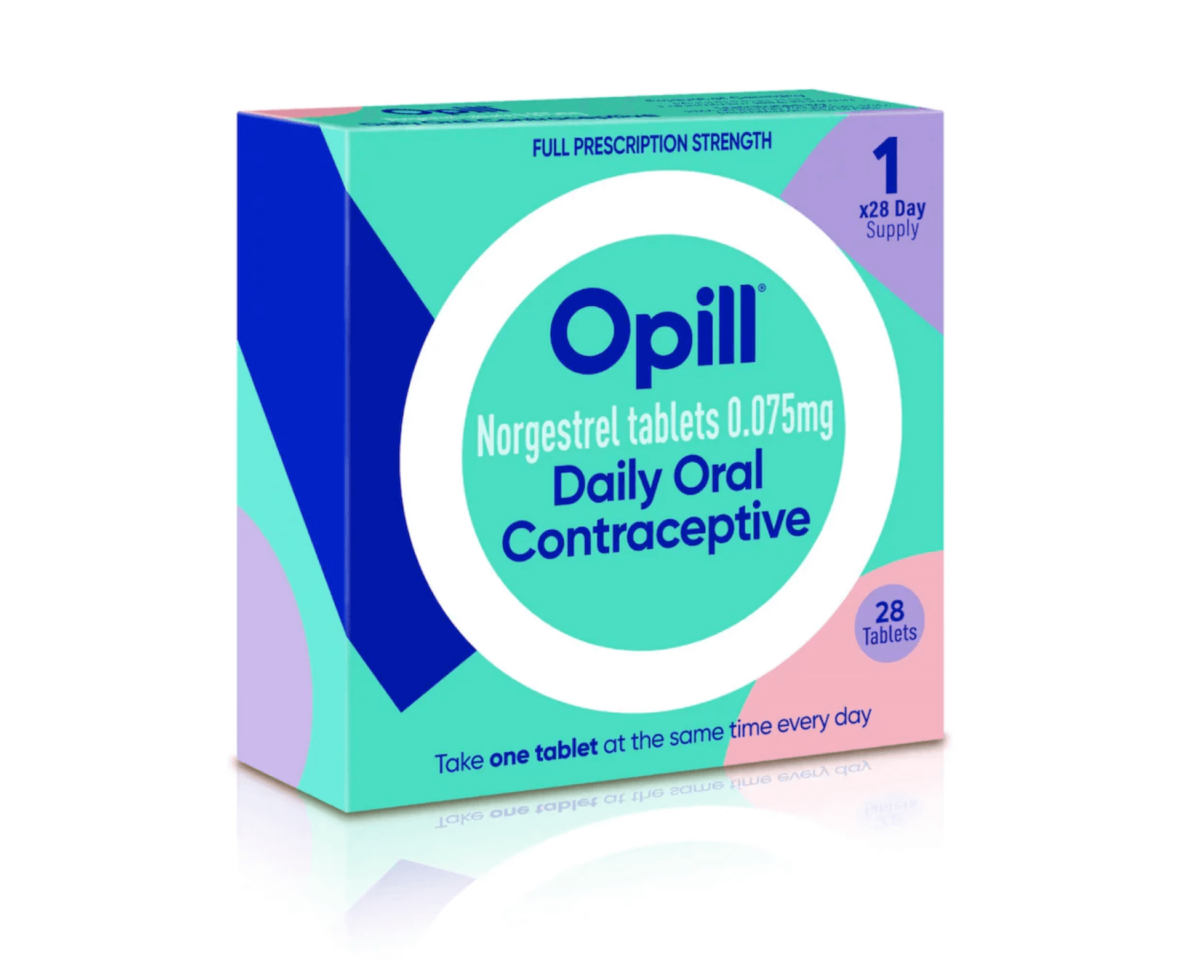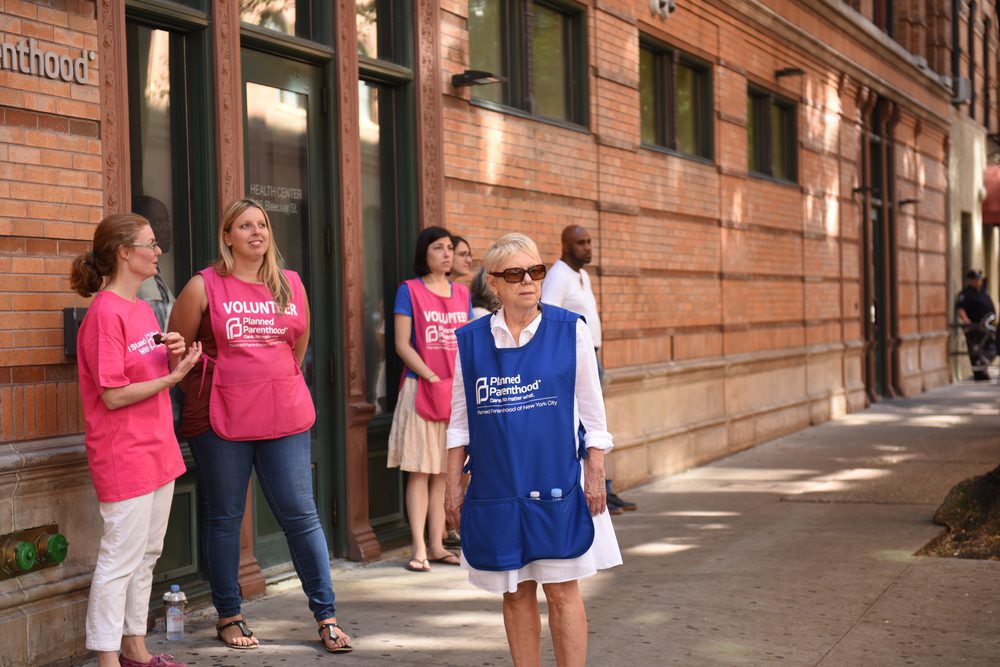
The first non-prescription birth control pill approved in the United States is expected to hit store shelves nationwide later this month, Perrigo Company, the drug’s manufacturer, announced on Monday. (Perrigo, via Associated Press)
The first non-prescription birth control pill approved in the United States is expected to hit store shelves nationwide later this month, Perrigo Company, the drug’s manufacturer, announced on Monday.
Upon hitting store shelves, Opill will become the most effective birth control method available without a prescription, as it’s more effective at preventing pregnancy than condoms, spermicides, and other over-the-counter methods, though still not as effective as an intrauterine device (IUD) or implant.
The company’s statement says that a one-month supply of Opill will cost $19.99 and a three-month supply will cost $49.99. A six-month supply will be available to purchase online for $89.99, and preorders will be available as early as this week.
Opill was approved for over-the-counter sales by the US Food and Drug Administration (FDA) in July. In issuing its decision, the FDA panel cited the safety and efficacy of Opill, which was approved for prescription use 50 years ago, and has since been found to be 93% effective at preventing pregnancy.
As opposed to some birth control pills which contain two hormones to prevent pregnancy, Opill has one: progestin.
Opill should be taken at the same time every day, according to the FDA’s guidance. “Adherence to daily use at the same time of day is important for the effectiveness of Opill,” an agency press release reads.
Planned Parenthood also notes the importance of taking Opill at the same time each day within a 3-hour window in order to ensure maximum effectiveness.
Reproductive and adolescent health experts and groups like the American Medical Association, the American College of Obstetricians and Gynecologists (ACOG), and the American Academy of Family Physicians have long called for birth control to be available without a prescription for all ages in order to make it easier for women and teenage girls to access contraception.
Over-the-counter birth control options are already available in over 100 countries, according to Free The Pill, a reproductive advocacy group. The project’s director, Victoria Nichols, said the availability of Opill is a “landmark moment” in a statement.
She did say, however, that “Opill’s suggested retail price will create barriers to access, especially for young people and those working to make ends meet.”
Over-the-counter medications typically aren’t covered by insurance, which can price them out of reach for some individuals.
A 2022 survey from KFF, a health care research organization, found that more than 75% of women of reproductive age said they preferred an over-the-counter pill, mostly because of convenience. Nearly 40% said they would be likely to use it.
The medication’s rollout comes amid various legal battles over reproductive rights. Since the repeal of Roe v. Wade, Republicans have sought to pass a nationwide abortion ban and to restrict access to abortion care.
The Biden administration has taken steps to expand access to abortion, particularly medication abortion. The FDA last year issued new guidance allowing certified pharmacies in states where abortion is legal to offer abortion pills to patients with a prescription, for example.
Last week, the two largest pharmacy chains in the United States, CVS and Walgreens, announced that they’ll start dispensing mifepristone in a handful of states later this month. Mifepristone, along with another drug, misoprostol, is approved through 10 weeks of pregnancy and is used in more than half of abortions nationwide.
The US Supreme Court, however, is set to hear a case this month that could threaten the availability of mifepristone.
A far-right conservative Christian group, the Alliance Defending Freedom, is seeking to revoke the FDA’s 2000 approval of mifepristone, or at minimum, severely restrict access to it. If the court opts to restrict or ban access to the medication, it would dramatically restrict access to abortion, even in states where it remains legal.

Trump administration revokes guidance requiring hospitals to provide emergency abortions
WASHINGTON (AP) — The Trump administration announced on Tuesday that it would revoke guidance to the nation's hospitals that directed them to...

Five reproductive rights bills were sent to Gov. Joe Lombardo’s desk—here’s what they’d do
Gov. Joe Lombardo, a Republican, has a choice to make very soon—break with many Republicans across the country and sign reproductive freedom...

House GOP fast-tracks budget bill that would cut off Medicaid funding to Planned Parenthood
The budget package proposes steep health care cuts—and includes a new push to block patients from accessing reproductive care. In a 30-24 party-line...

Nevada’s “parental consent” abortion law will go into effect April 30, putting vulnerable minors at greater risk
A law that has been on hold for 40 years—one that requires parents or guardians to be notified before a minor receives an abortion—will soon be...

Way more Americans are getting sterilized since Roe was struck down, research finds
A new study has found that from May to August 2022, vasectomies surged by 95% and tubal sterilizations increased by 70% among adults ages 19 to 26....

People are leaving states with abortion bans, according to study
A new analysis from the National Bureau of Economic Research found that since 2022, states with near-total abortion bans appear to have lost 36,000...




